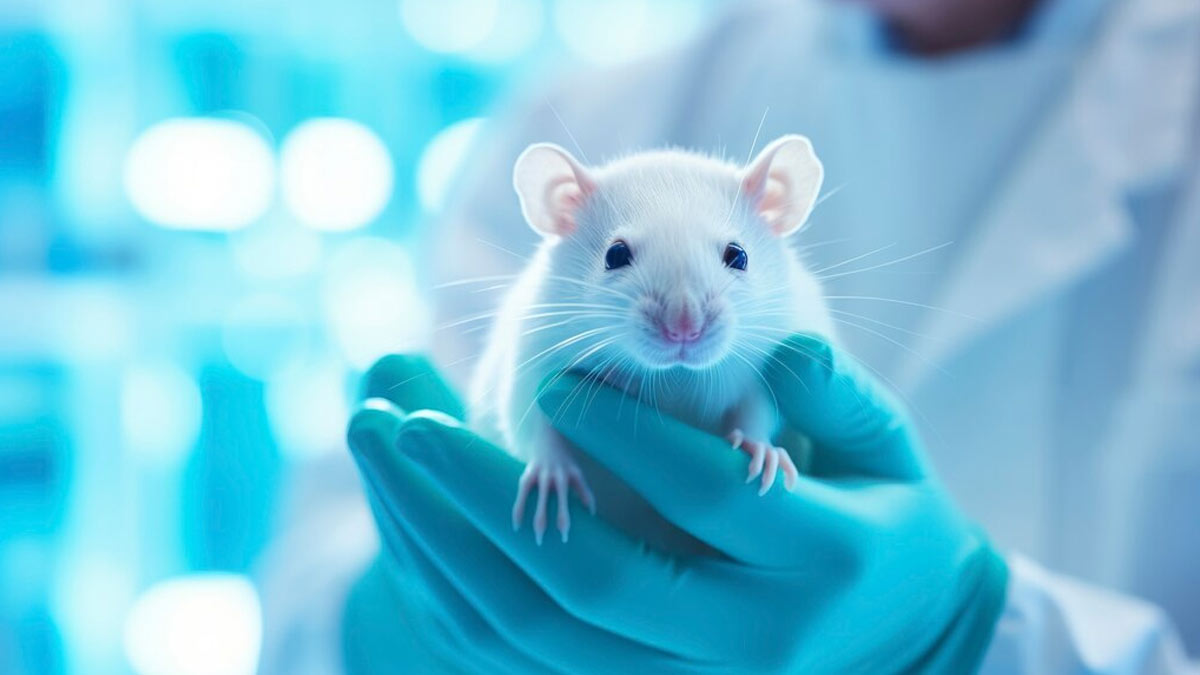
In a groundbreaking yet concerning revelation, China has recently developed a new mutant strain of the COVID-19 virus, named GX_P2V, showcasing a staggering 100 per cent mortality rate in "humanised" mice. This revelation has sparked significant apprehension within the scientific community, given the potential implications for human health. While the study outlining this discovery has been made available on the preprint site bioRxiv, it's essential to emphasize that the research has not undergone a thorough peer-review process.
Table of Content:-
The Lethal Impact on Humanized Mice

The study focused on human ACE2-transgenic mice, genetically engineered to mimic human receptor structures, intentionally infected with GX_P2V. The results were alarming, as the mortality rate among these mice was unprecedented. Within five days of infection, the mice exhibited substantial weight loss, lethargy, and whitened eyes, ultimately succumbing to the virus just eight days after exposure. The virus demonstrated an ability to infiltrate various organs, including the lungs, bones, eyes, tracheas, and notably, the brain.
Also Read: Corbevax: India's COVID-19 Vaccine Receives WHO Emergency Use Listing
The Menace of Brain Infection
A critical revelation from the study is the virus's potential to cause severe brain infection in the late stages of exposure. Although further research is imperative to comprehend the mechanisms behind this phenomenon, the implications are severe. A virus breaching the blood-brain barrier and attacking the central nervous system poses formidable challenges in terms of treatment and containment.
Also Read: Why COVID-19 Cases Start To Rise With Winter Onset: Expert Explains
Global Concerns and Viral Evolution
The emergence of GX_P2V underscores the evolving nature of viruses and their ability to adapt to different environments. While mutations in viruses are not uncommon, intentional manipulation for research purposes raises distinct concerns. The global scientific community remains vigilant, as illustrated by ongoing collaborative efforts to monitor and understand the evolution of COVID-19, exemplified by variants like Delta and Omicron.
Dispelling Panic
Although the discovery of GX_P2V raises eyebrows, it's crucial to note that a new mutation does not automatically translate into a widespread outbreak or imminent health hazard. Scientists worldwide continue to closely monitor and analyze these developments, employing proactive strategies to combat the virus. While the study conducted in China sheds light on the potential dangers of intentional virus manipulation, it's important to maintain a balanced perspective and avoid unnecessary panic.
Bottomline
In conclusion, the revelation of the GX_P2V variant in China, with a 100 per cent mortality rate in humanized mice, demands attention and underscores the ongoing battle against the virus. The findings, though yet to undergo peer review, highlight the critical role of unwavering scientific research and global collaboration in addressing emerging threats. As the world strives to overcome the pandemic, sustained efforts from governments, scientists, and individuals are imperative to safeguard public health and navigate the complexities of viral evolution.
Also watch this video
How we keep this article up to date:
We work with experts and keep a close eye on the latest in health and wellness. Whenever there is a new research or helpful information, we update our articles with accurate and useful advice.
Current Version